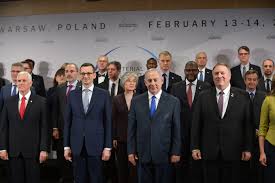The 2025 Middle East Security Summit has convened world leaders, diplomats, and regional representatives to address escalating tensions in the region. Hosted in Riyadh, Saudi Arabia, the summit comes at a critical juncture, as geopolitical dynamics, resource disputes, and social unrest continue to challenge stability. Discussions have focused on security cooperation, conflict resolution, counterterrorism, and economic collaboration, reflecting the interconnected nature of politics, energy, and security in the Middle East.
Regional powers, including Saudi Arabia, Iran, the United Arab Emirates, and Turkey, are at the center of negotiations. Leaders have emphasized the importance of dialogue and cooperation to prevent escalation, particularly in conflict-prone areas such as Yemen, Syria, and the Persian Gulf. Military alliances, joint intelligence initiatives, and diplomatic mechanisms are being explored to strengthen regional security frameworks.
The summit has also highlighted the role of international stakeholders, including the United States, European Union, Russia, and China. These actors bring strategic interests, economic influence, and security guarantees to the table, contributing to a complex negotiation environment. Balancing regional autonomy with global engagement remains a core challenge for summit organizers.
Counterterrorism efforts are a major agenda item. The rise of extremist groups in parts of the region has prompted coordinated initiatives, including intelligence sharing, border security, and cyber defense strategies. Leaders have emphasized the need to address underlying socio-economic factors, such as unemployment, marginalization, and ideological radicalization, as part of a comprehensive security approach.
Energy security also features prominently in discussions. The Middle East remains a critical global energy hub, supplying a substantial portion of the world’s oil and gas. Political instability can affect global markets, emphasizing the need for stable governance, conflict mitigation, and cooperative energy policies. Renewable energy initiatives are increasingly being integrated into security discussions, reflecting the region’s transition toward sustainable energy sources.
The summit has provided a platform for dialogue on diplomatic normalization and conflict resolution. Recent agreements between formerly adversarial states indicate a willingness to engage in constructive negotiation, although historical grievances and ongoing territorial disputes continue to pose challenges. Mediators and observers stress that sustained dialogue and confidence-building measures are essential to achieving lasting peace.
Economic collaboration has emerged as a complementary strategy to bolster regional security. Trade agreements, infrastructure projects, and investment initiatives are being considered to promote economic stability and interdependence. By linking security and prosperity, leaders aim to reduce incentives for conflict and encourage cooperation among nations.
Humanitarian issues are also central to the summit agenda. Addressing refugee crises, displaced populations, and access to basic services is critical to maintaining regional stability. Coordinated international support, development programs, and social interventions are being prioritized to alleviate humanitarian pressures and foster resilience in affected communities.
Technology and cybersecurity have become increasingly important in regional security planning. Cyber threats, including state-sponsored attacks, terrorism-related hacking, and digital espionage, pose significant risks to critical infrastructure, communication networks, and governance. Summit discussions have emphasized cooperation in cyber defense, intelligence sharing, and regulatory frameworks to mitigate threats.
Analysts note that political tensions in the Middle East are influenced by both historical and contemporary factors. Sectarian divides, territorial disputes, and foreign intervention have long shaped regional dynamics. In addition, competition over natural resources, water scarcity, and demographic pressures add layers of complexity to security planning. Summit participants are exploring multi-dimensional solutions that address these interrelated challenges.
Public engagement and media coverage are shaping perceptions of the summit. Transparency, communication strategies, and international reporting influence domestic and global audiences, emphasizing the role of information in shaping political legitimacy, trust, and diplomatic outcomes. Social media has amplified public scrutiny, highlighting citizen expectations for accountability, peace, and sustainable development.
Despite the complexity of negotiations, early outcomes suggest cautious optimism. Agreements on joint security patrols, intelligence cooperation, and economic partnerships signal progress, even as underlying disputes remain unresolved. Observers stress that incremental confidence-building measures are often more effective than comprehensive agreements in fragile political environments.
Looking ahead, the summit’s success will depend on sustained diplomatic engagement, enforcement of agreements, and integration of security, economic, and humanitarian strategies. Regional leaders face the challenge of balancing sovereignty, international expectations, and internal political dynamics while ensuring that security measures are both effective and equitable.
FAQs
What is the focus of the Middle East Security Summit 2025?
The summit addresses regional security, conflict resolution, counterterrorism, energy stability, and economic collaboration.
Which countries are key participants?
Saudi Arabia, Iran, UAE, Turkey, along with international stakeholders like the U.S., EU, Russia, and China.
How does the summit address terrorism?
Through intelligence sharing, joint counterterrorism initiatives, border security, and addressing socio-economic root causes.
Why is energy security important?
Political instability in the Middle East can affect global oil and gas markets, impacting international energy supply and prices.
Are humanitarian issues part of the discussions?
Yes. The summit prioritizes refugee support, displaced populations, and access to essential services to maintain regional stability.
Conclusion
The 2025 Middle East Security Summit highlights the intricate interplay between diplomacy, conflict resolution, and economic collaboration. By addressing terrorism, energy stability, humanitarian concerns, and technological threats, regional leaders aim to create a framework for lasting security. While challenges persist, including historical disputes and geopolitical competition, the summit demonstrates a commitment to dialogue, cooperation, and proactive strategies. The outcomes will influence not only regional stability but also global political and economic dynamics in the years to come.







